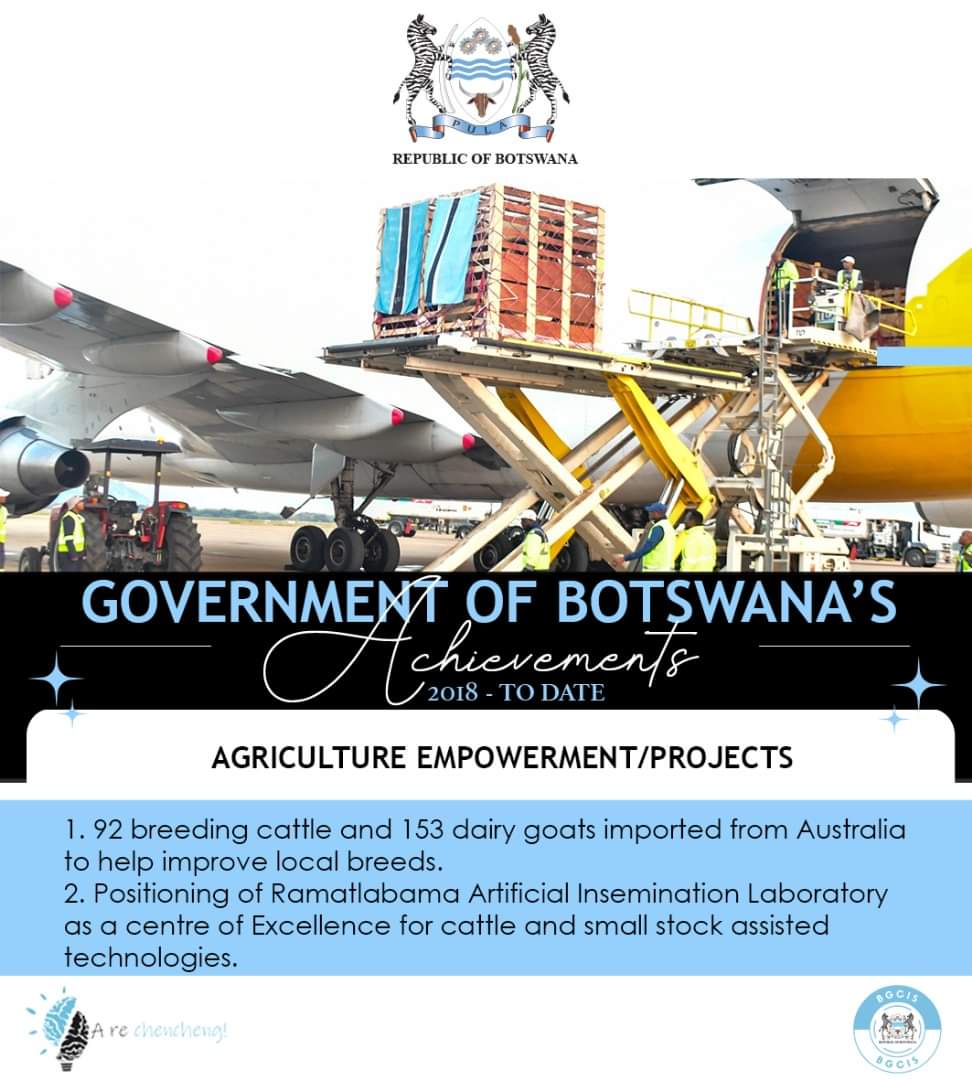Botswana’s advancements in agriculture, particularly in breeding cattle and enhancing small stock technologies, have reverberated across borders, reaching Nigeria with significant implications for its agricultural sector. Since April 2018, the collaboration between the two nations has resulted in notable achievements, particularly in the areas of livestock breeding and artificial insemination. Let’s delve into the progress made and the potential implications for Nigeria’s agricultural landscape.
Breeding Cattle and Dairy Goats Importation:
One of the pivotal initiatives under the Botswana-Nigeria agricultural collaboration has been the importation of 92 breeding cattle and 153 dairy goats from Australia to Nigeria. This move aims to enhance local breeds, improve genetic diversity, and boost the productivity of Nigeria’s livestock sector. By introducing superior breeds, Nigeria can potentially increase meat and dairy production, meet domestic demand, and even explore export opportunities in the future. Moreover, the influx of new genetic material can strengthen the resilience of local breeds against diseases and environmental stressors, contributing to the overall sustainability of the sector.
Ramatlabama Artificial Insemination Laboratory:
Another significant milestone in the collaboration is the positioning of the Ramatlabama Artificial Insemination Laboratory as a center of excellence for cattle and small stock assisted technologies. This laboratory serves as a hub for cutting-edge research, innovation, and training in artificial insemination techniques, with a focus on both cattle and small stock such as goats. By leveraging advanced reproductive technologies, Nigeria aims to enhance breeding efficiency, accelerate genetic improvement, and ultimately increase livestock productivity. Additionally, the laboratory serves as a knowledge-sharing platform, providing technical assistance and capacity building to local stakeholders, including farmers, veterinarians, and extension workers.
Implications for Nigeria’s Agriculture:
The achievements of Botswana’s agricultural initiatives in Nigeria hold significant implications for the country’s agricultural sector. By enhancing livestock breeds and adopting modern reproductive technologies, Nigeria can address key challenges such as low productivity, limited genetic diversity, and inadequate infrastructure. Moreover, the collaboration fosters knowledge exchange, technology transfer, and capacity building, empowering local stakeholders to drive agricultural innovation and sustainable development. Ultimately, these efforts can contribute to food security, poverty reduction, and economic growth in Nigeria, positioning the country as a regional leader in agricultural transformation.
In conclusion, the collaboration between Botswana and Nigeria in agriculture, particularly in breeding cattle and enhancing small stock technologies, represents a significant milestone in the quest for agricultural development and sustainability. By leveraging Botswana’s expertise and achievements, Nigeria is poised to unlock the full potential of its agricultural sector, ushering in a new era of productivity, resilience, and prosperity for farmers and communities across the country. As the partnership continues to evolve, the shared commitment to agricultural excellence holds the promise of a brighter future for Nigeria’s agricultural landscape.










